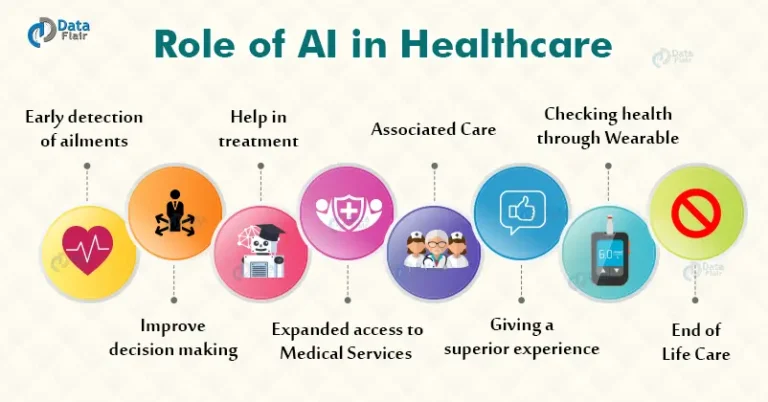How Can I Protect My Business Online?
In today’s digital world, it is essential for businesses to ensure their online presence is secure. There are a variety of steps that can be taken to protect a business from cyber threats, such as implementing a strong password policy, regularly updating software, and using two-factor authentication. Additionally, businesses should consider investing in cybersecurity software to monitor their online activities and detect any malicious attacks. Finally, businesses should regularly back up their systems and data to ensure that they can quickly recover from any potential cyber attack. By taking these steps, businesses can protect themselves from the risks of a digital world.
Setting Up Firewalls
It is essential to protect your business online, and one of the best ways to do this is to set up firewalls. Firewalls act as a barrier between your business and the internet, preventing unauthorized users from accessing your data or servers. Firewalls can be set up in a variety of ways, including hardware and software. Hardware firewalls are physical devices that are installed on your network and can be configured to block certain types of traffic. Software firewalls are programs installed on your computer or server that can be configured to block certain types of traffic. Setting up firewalls can be complicated, so it is important to consult a professional if you are unsure of how to do it. Additionally, it is important to keep your firewall up-to-date with the latest security patches to ensure that you are protected against the latest threats. Firewalls are an important part of protecting your business online and should be implemented as part of your overall security strategy.
Establishing Secure Passwords
Creating strong passwords is an important step in protecting your business online. Passwords are the first line of defense against malicious actors, so they must be secure and unique. To do this, create passwords that are at least eight characters long, contain a combination of upper and lowercase letters, numbers, and symbols. Avoid using common words, phrases, or personal information like birthdays and addresses, as these are easily guessed. Consider using a password manager to generate and store your passwords. This will help ensure that all of your passwords are unique, and can be easily recovered if needed. Additionally, take caution when accessing your accounts from public computers or wifi networks, as these can be more vulnerable to cyber-attacks. Taking the necessary steps to ensure your passwords are secure will help protect your business online.
Utilizing Antivirus Software
Online security is essential for businesses of all sizes, and antivirus software is a must-have tool for protecting your business from malicious online threats. Antivirus software provides an extra layer of protection by actively scanning your computer for any malicious programs or viruses, as well as blocking malicious websites and emails. Additionally, antivirus software can help to detect and remove any viruses that have been downloaded onto your computer.
It’s important to choose an antivirus software that is right for your business. Research the different antivirus software options available and select the one that best meets your needs. Make sure to research the company behind the product, as well as any reviews from customers or industry experts. You should also consider the cost of the software, as well as any other features that may be offered.
Once you have selected the antivirus software, it’s important to regularly update the software to ensure that it is up to date. This will help to ensure that your systems are as secure as possible. Additionally, you should regularly check for any patches or updates to the software to ensure that the latest security patches and fixes are applied.
By utilizing antivirus software, you can help to protect your business from online threats. It’s important to put in the time to research the different options available to find the best fit for your business. Additionally, ensure that you regularly update the software to keep your systems secure.
Implementing Regular Backups
Backups are your safety net in the digital world. Without them, you can lose all of the important data you have accumulated over time. That is why it is important to implement regular backups of your website and data to ensure your business is safe and secure. Backups should be taken on a regular basis, such as daily or weekly, to ensure that any changes made or data added is not lost in the event of a system crash or malicious attack. Additionally, backups should be stored securely in an off-site location to ensure their safety against physical damage or theft. Taking regular backups and storing them securely can help protect your business from data loss, and ensure you’re always prepared for the unexpected.
Engaging in Online Security Education
Online security education is an important aspect of protecting your business from cyberattacks. It is essential to understand the various threats that exist online, how to protect against them, and the steps to take in the event of a breach. By engaging in ongoing online security education, you can become aware of the latest threats, and equip yourself with the knowledge and tools to protect your business.
One of the most effective ways to educate yourself and your employees is to attend educational seminars or webinars. These sessions provide an opportunity to learn about the latest cyber threats and discuss best practices for protecting your business. Additionally, these seminars can offer hands-on training, allowing you to gain practical experience in managing online security.
Another way to engage in online security education is to stay up-to-date with the latest news and research. Read industry publications, blogs, and other sources of information to learn about emerging threats and security trends. It’s also helpful to stay in touch with online security experts, such as those at your local chamber of commerce or university. You can even follow them on social media to stay abreast of the latest news and trends.
Finally, you should consider implementing security training programs within your organization. These programs can provide a comprehensive overview of the risks associated with online security, and allow you to educate your employees on best practices for protecting your business.
By engaging in ongoing online security education, you can ensure that your business is better prepared to protect itself from cyberattacks. Through seminars, reading, and training programs, you can stay up-to-date on the latest threats and best practices for protecting your business.
Utilizing Two-Factor Authentication
In today’s digital world, protecting your business online is essential for success and longevity. One of the most effective ways to ensure that your accounts, data, and other sensitive information are safe is through two-factor authentication (2FA). 2FA is a security measure that requires two separate forms of authentication before allowing access to a protected resource. It is an extra layer of security that goes beyond a simple username and password.
2FA works by asking for an additional piece of information or “factor” that only the user knows. This could be a one-time code sent via SMS or email, a biometric scan, or a hardware token. By requiring two separate forms of authentication, 2FA makes it much more difficult for malicious actors to gain access to your accounts, data, and other sensitive information.
In addition to the added security, 2FA also gives businesses an additional layer of accountability. With 2FA, businesses can easily track who is accessing their accounts and whether they are authorized to do so. This can be especially useful for businesses that have multiple users or are required to comply with certain regulations.
Overall, two-factor authentication is an excellent tool for protecting your business online. It adds an extra layer of security and accountability, helping to keep your accounts, data, and other sensitive information safe.
FAQs About the How Can I Protect My Business Online?
1. What steps can I take to protect my business online?
A: There are a few steps you can take to protect your business online, such as regularly updating your software, using strong passwords, setting up two-factor authentication, and using a secure VPN connection.
2. How can I ensure that personal and sensitive data is secure?
A: To ensure that personal and sensitive data is secure, you can encrypt your data, use a secure web hosting provider, and limit access to the data to only those who need it. You can also use a secure file-sharing service for sharing data.
3. How can I protect my business from cyber attacks?
A: To protect your business from cyber attacks, you can use malware protection software, regularly update your software, employ strong passwords, and use firewalls to protect your network. Additionally, you should educate yourself and your team on best security practices.
Conclusion
Protecting your business online is essential in today’s digital world. Taking the time to understand the security risks and implementing measures to protect your business is one of the most important steps you can take to protect your business from cybercrime and other online threats. Implementing a firewall, using strong passwords, and regularly updating your software are all great ways to protect your business online. Additionally, educating yourself and your employees about data security best practices is also important in protecting your business from online threats.



